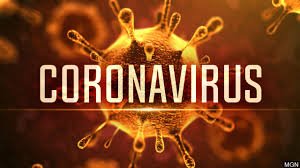
Clinton County Health Officer Dr. Steve Tharp said things are constantly changing which makes things difficult to judge.
“My concern is that the entire country is going to stop,” said Tharp. “I think this pandemic will be transformational for a lot of things. There are a lot of concerns that we have. This is a lot more hazardous for the elderly than it is for children.”
Clinton County Health Department Director Rodney Wann said there were no current cases of the coronavirus in the county. However, he added, “We probably can’t prevent it.”
Tharp said there are specific signs and symptoms for the coronavirus.
“The cardinal symptoms are fever, cough and signs of breathing difficulty…shortness of breath,” said Tharp. “Body aches have also been added to the list.”
The Center for Disease Control (CDC) says there are simple things you can do to help keep yourself and others healthy. They are:
- wash your hand often with soap and water for at least 20 seconds, especially after blowing your nose, coughing or sneezing; going to the bathroom; and before eating or preparing food.
- avoid touching your eyes, nose and mouth with unwashed hands.
- stay home when you are sick.
- cover your cough or sneeze with a tissue, then throw the tissue in the trash.
“People do need to remember to wash their hands,” said Tharp. “This is one of the most effective methods of keeping from getting sick.”
Besides washing your hands frequently and often, the CDC recommends avoiding close contact with people who are sick (at least six feet apart is recommended), stay home when you are sick, except to get medical care and clean and disinfect frequently touched objects and surfaces.
The Indiana State Department of Health also recommends individuals create a home emergency kit that consists of non-perishable food, bottled water, medications, flashlight and extra batteries, first aid kit, warm clothing baby supplies and pet supplies.
Tharp said studies have shown symptoms have appeared as early as three days and 95 percent of people who get sick have symptoms by 11 1/2 days. He said that’s why they quarantine people for 14 days.
However, there is one thing Tharp doesn’t think should happen as yet.
“I don’t believe we should be closing schools at this time,” said Tharp. “I think the decision to do that would be based on the number of people that are involved and absences from the school. We use that as a proxy for how many people may be sick and how many would be at risk if we continue to have the schools open. One person getting sick shouldn’t make it an automatic closure.”
Tharp said that number for schools to close would be around 20 percent.
“We don’t know about what happens if we close school for the rest of the year,” he said. “Parents and grandparents are the most at risk.”
Community Schools of Frankfort Superintendent Don DeWeese had another concern.
“If the word got out there is a confirmed case in our school, we’d be down to 60 percent the next day,” he said.
Tharp also said if schools were closed, a concern would be raised about children regarding where are they going to go and what are they going to do. He added young people can carry the disease and spread it.
